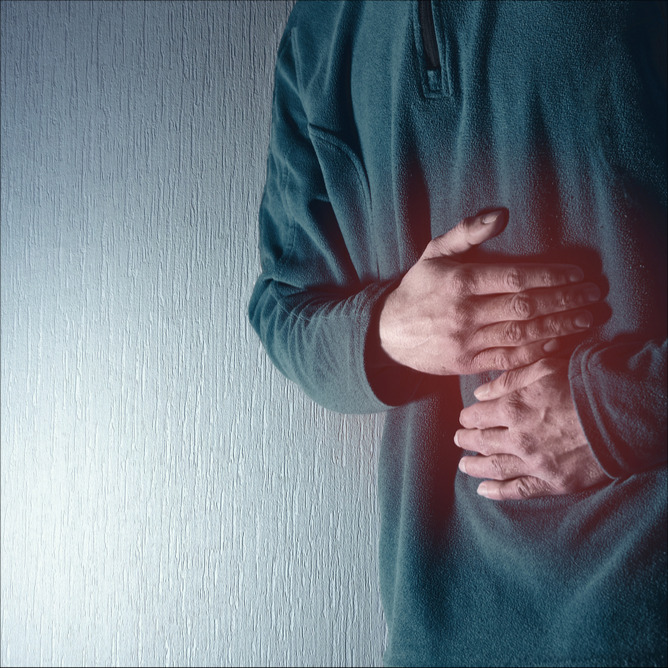
Crohn's disease
Understanding Crohn's disease: Symptoms, causes and treatment options
Crohn's disease is a chronic inflammatory disease of the
digestive tract that belongs to the group of inflammatory bowel diseases (IBD)
.
It can occur in any part of the gastrointestinal tract from the
oral cavity to the anus, but most commonly affects the last
part of the small intestine (ileum) and the initial part of the large intestine.
The inflammation can affect all layers of the intestinal wall
and lead to a variety of symptoms that can significantly impair the quality of life of
sufferers.
The exact causes of Crohn's disease are not yet
fully understood, but a combination of genetic, immunological and
environmental factors are being discussed as triggers.
In this article, we will take an in-depth look at the symptoms, causes and various treatment options for Crohn's disease to give you a comprehensive understanding of this complex disease.
Symptoms of Crohn's disease
The symptoms of Crohn's disease can vary greatly from person to person , both in their intensity and in their nature. Some of the most common symptoms are:
- Abdominal pain and cramps
- Diarrhoea, which can be frequent and severe
- Blood in the stool
- Weight loss
- Tiredness and a general feeling of weakness
- Loss of appetite
In some cases, symptoms outside the digestive system may also occur, including fever, skin rashes, arthritis and inflammation of the eye.
Due to the variety and severity of symptoms, Crohn's disease can have a significant impact on the quality of life of those affected.
Causes of Crohn's disease
The exact causes of Crohn's disease are not yet fully understood, but researchers believe that a combination of genetic, immunological and environmental factors contribute to it.
Some of the factors that may play a role include:
- Genetics: There are certain genes that may increase the risk of developing Crohn's disease. If family members have the disease, the risk of developing it yourself is also higher.
- Immune system: A malfunction of the immune system, in which the body mistakenly attacks healthy tissue in the digestive tract, could be a cause.
- Environmental factors: Smoking, certain medications, diet and stress can increase the risk of Crohn's disease.
Diagnosis of Crohn's disease
The diagnosis of Crohn's disease is based on a combination
of patient history, physical examination and a series of tests.
These tests may include blood tests, stool examinations, endoscopic procedures such as a colonoscopy or capsule endoscopy, and imaging procedures such as MRI or CT scans. An accurate diagnosis is crucial in order to start appropriate treatment.
Treatment options
Treatment for Crohn's disease aims to relieve symptoms, reduce inflammation and minimise the risk of complications. There is currently no cure for Crohn's disease, but with appropriate treatment, many people can lead an active and fulfilling life. Treatment may include the following:
- Medication: This includes anti-inflammatory drugs, immunomodulators and biologics that can help control inflammation and regulate the immune system.
- Dietary changes: A special diet can help to alleviate symptoms and reduce inflammation.
- Surgery: In severe cases where medication is not effective, surgery may be required to remove damaged sections of the bowel.
Living with Crohn's disease
Crohn's disease is a lifelong condition that can be well managed with the
right treatment and care. Many people
with Crohn's disease can lead an active and fulfilling life
despite their illness.
It is important to build a good relationship with your doctor
, attend regular check-ups and consistently follow the recommended
treatments.
In addition, socialising with other sufferers in self-help groups or online forums can provide valuable support.
Conclusion
Crohn's disease is a complex and challenging disease that can affect every aspect of a person's life. However, through a better understanding of the symptoms, causes and treatment options , people with Crohn's disease can learn to manage their condition and lead a fulfilling life. If you or someone you know is showing signs of Crohn's disease, it is important to seek medical help as soon as possible in order to receive appropriate diagnosis and treatment .
Become a member now
As a member, you will receive further information and frequencies on this topic! Log in here!
